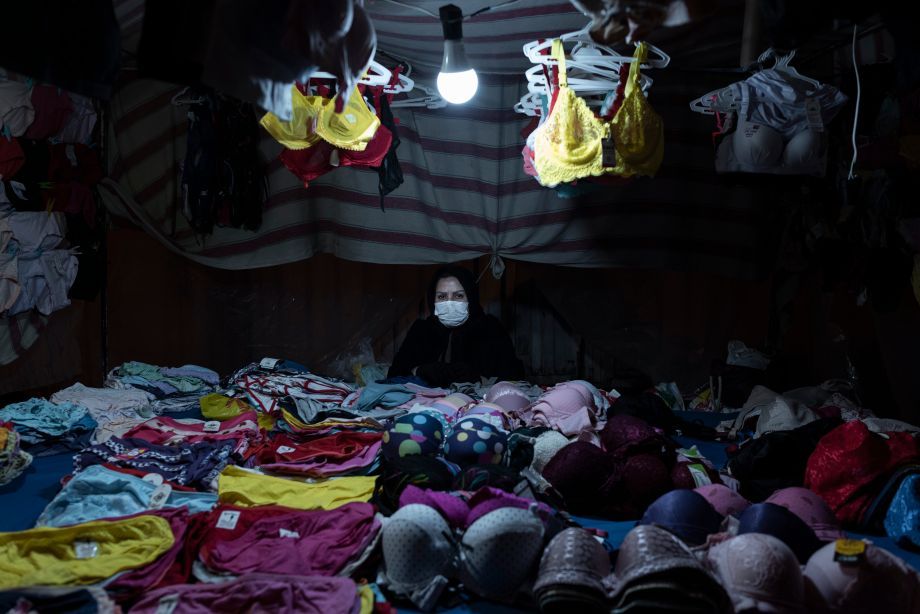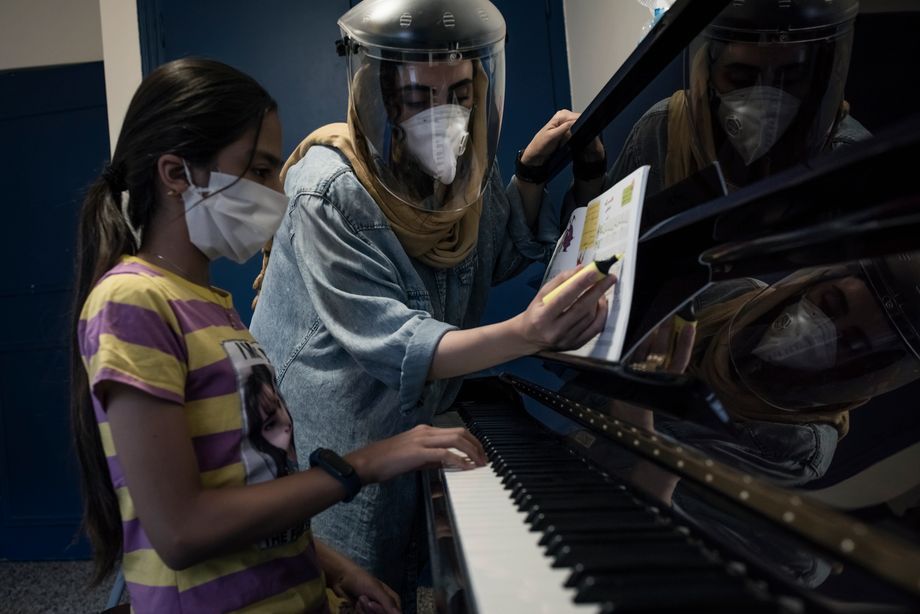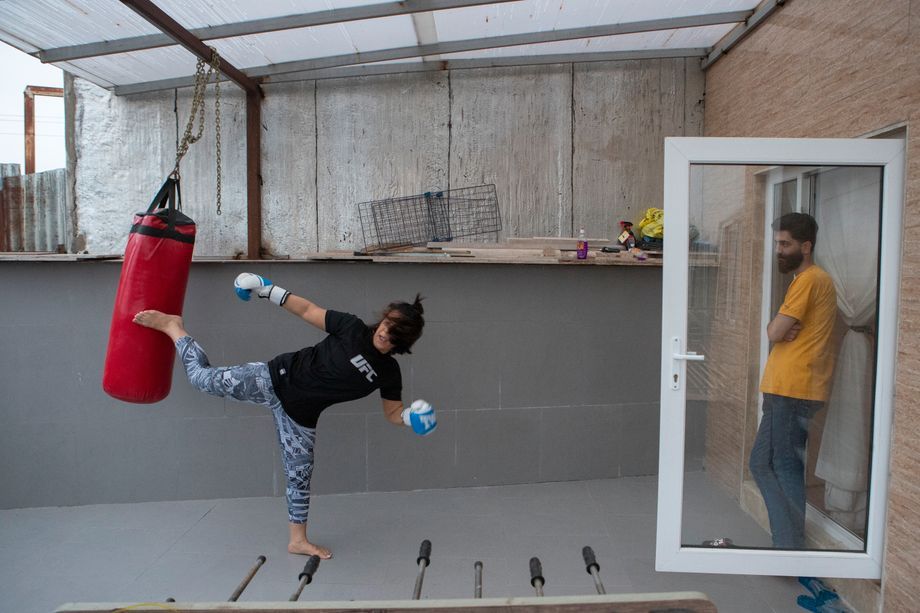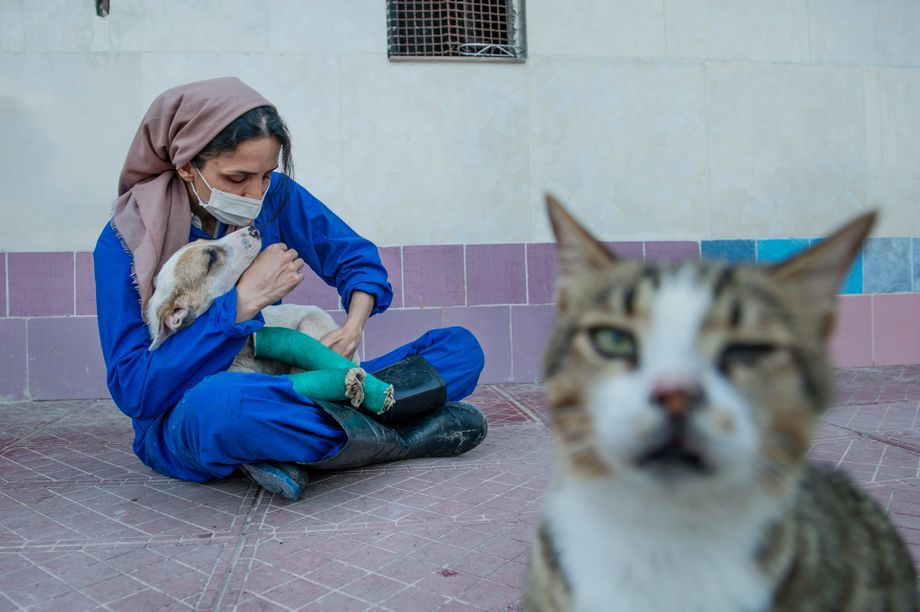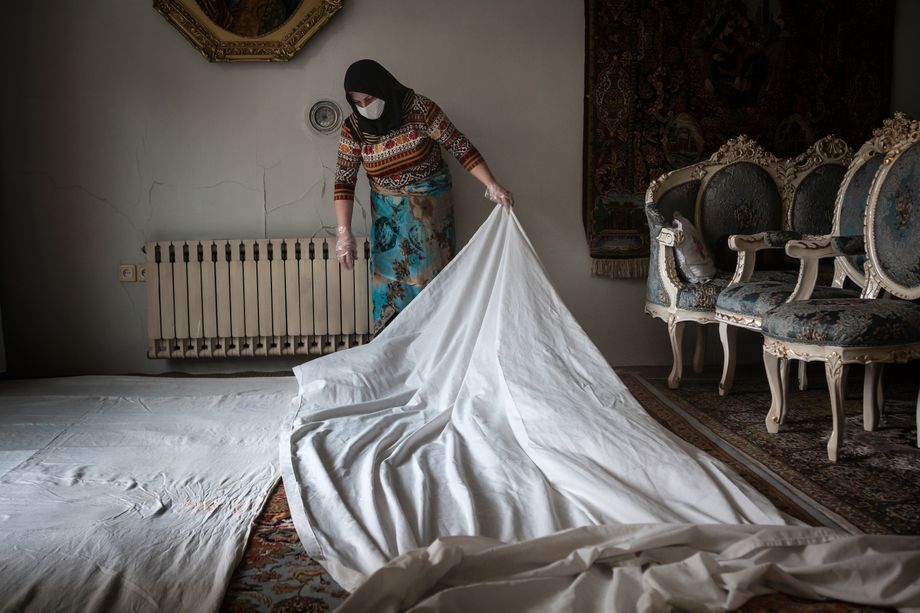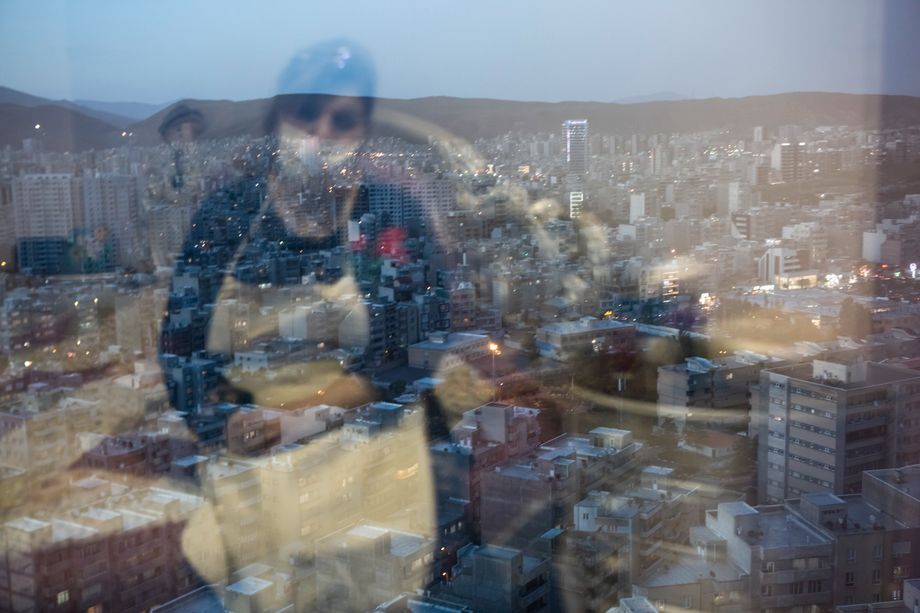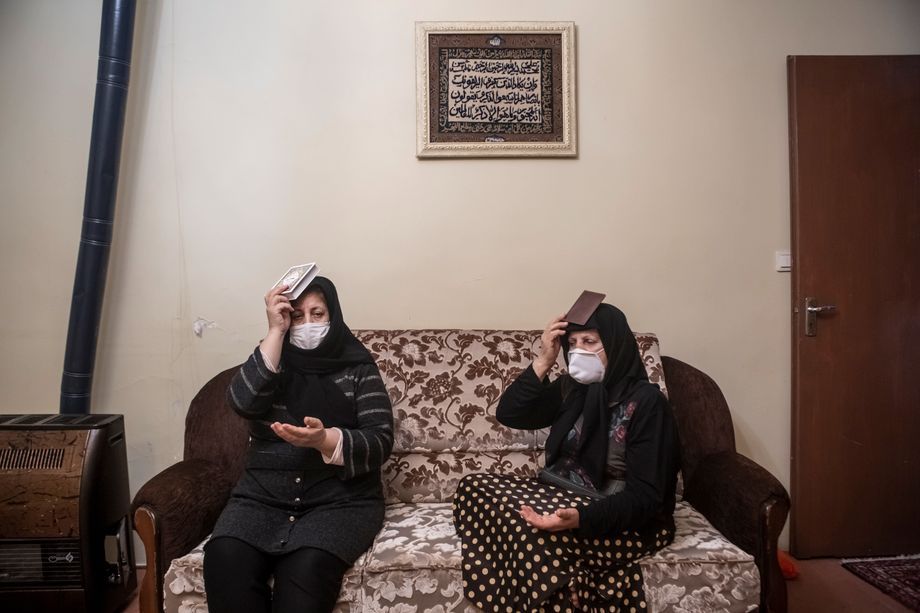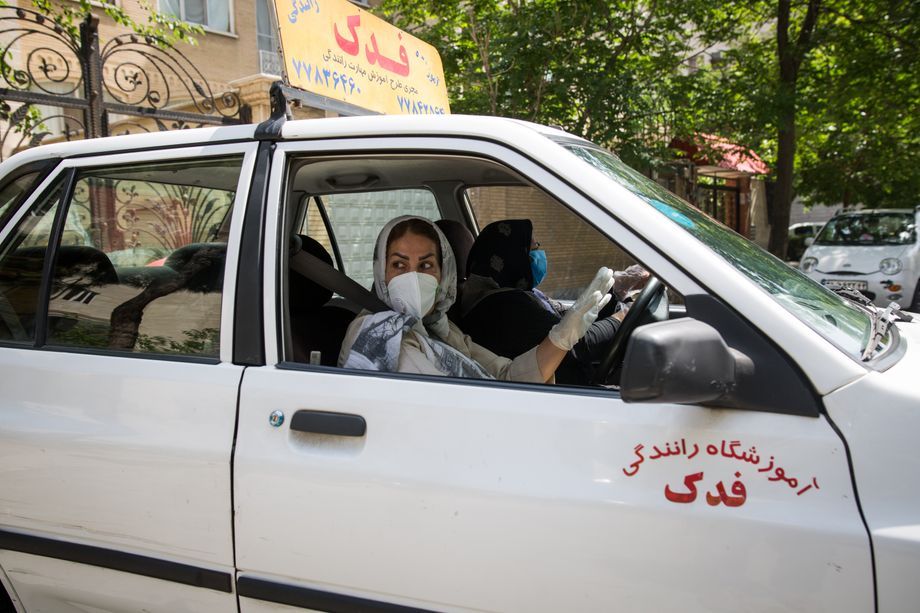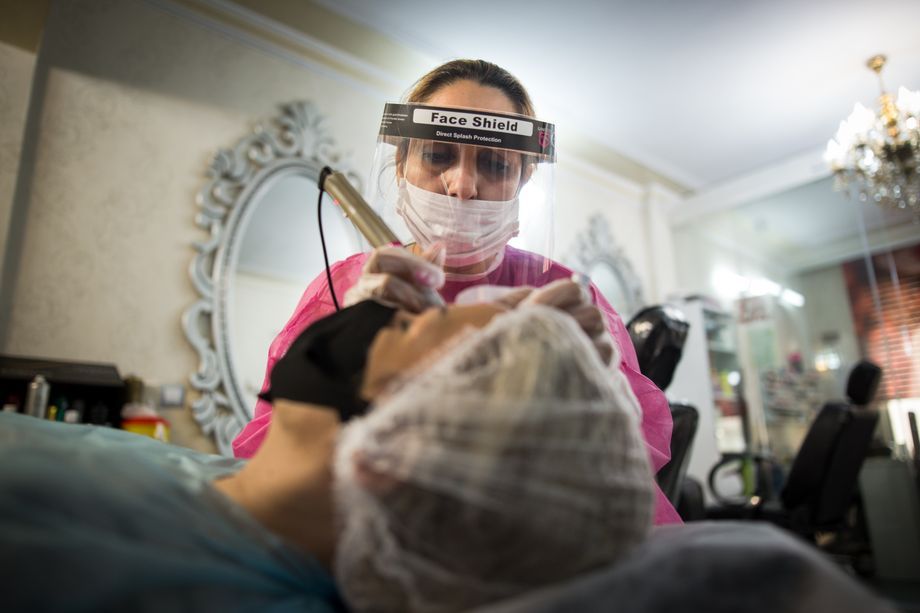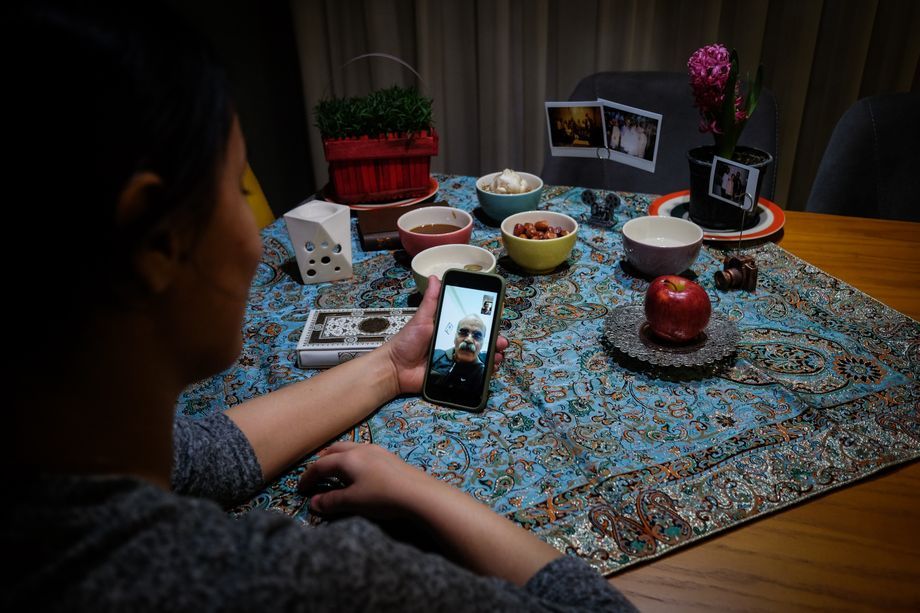Double protection: 31-year-old Mojdeh teaches children to play the piano in Gorgan. But in the past two months, all of their courses have been canceled. Practicing with the kids on the internet didn't work. Now she gives a few private lessons, only three a day, and earns around 63 euros a month. It is not enough to pay for living expenses and debts. Finding special protective masks is difficult. In addition, according to Mojdeh, spraying disinfectant permanently damages the piano. Iranian singers, in turn, give online traditional-style singing lessons for middle and upper-class women, some of whom also pay for it. Image by Kianoush Saadati / NVP Images. Iran, 2020.
